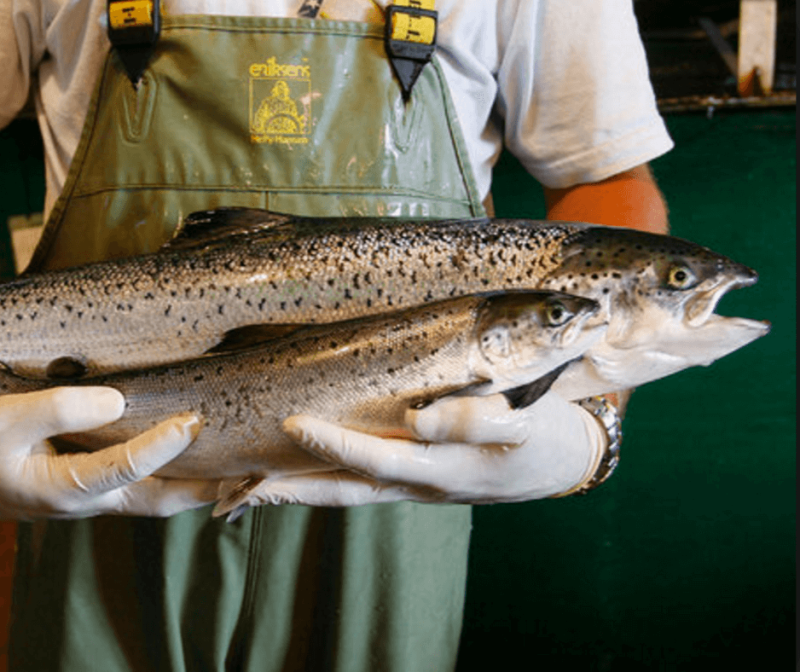The GLP aggregated and excerpted this blog/article to reflect the diversity of news, opinion and analysis.
Alaska Sen. Lisa Murkowski says she opposes federal approval of genetically engineered salmon “for the health of both consumers and fisheries.” But there is no scientific evidence that suggests GE salmon will pose a significant risk to either.
Murkowski claims GE salmon may “interbreed with the wild stocks, and thus perhaps destroy them.” But GE salmon have been rendered sterile . . . Geographic and physical confinement measures also limit the likelihood that the GE fish will escape and survive.
As for human consumption, scientists engineered GE salmon to grow faster than non-GE farm-raised salmon by inserting genes from two other fish into the genome of an Atlantic salmon. After these changes, the GE salmon remained nutritionally and physiologically comparable to non-GE salmon, according to Food and Drug Administration’s scientific assessments, so the agency deemed GE salmon “safe to eat.”
. . . .
In January, the FDA . . . issued a ban on the import and sale of GE salmon until the agency “publishes final labeling guidelines for informing consumers of such content,” the FDA said. The ban was the result of language Murkowski introduced into the 2016 fiscal budget, or omnibus, bill.
False claims about GE salmon have come from politicians on both sides of the party divide. . . Rep. Jared Huffman, a Democrat from California, has said, for example, that “by approving GE salmon, the FDA is allowing the release of a new hybrid animal that could pose a danger to our wild salmon populations, damage the ecosystems they live in, and undermine our domestic commercial fisheries.”
. . . .
We contacted Murkowski’s . . . office for clarification on her claims, but we have yet to receive a response. If we do, we will update this article accordingly.
Read full, original post: False Claims about ‘Frankenfish’































